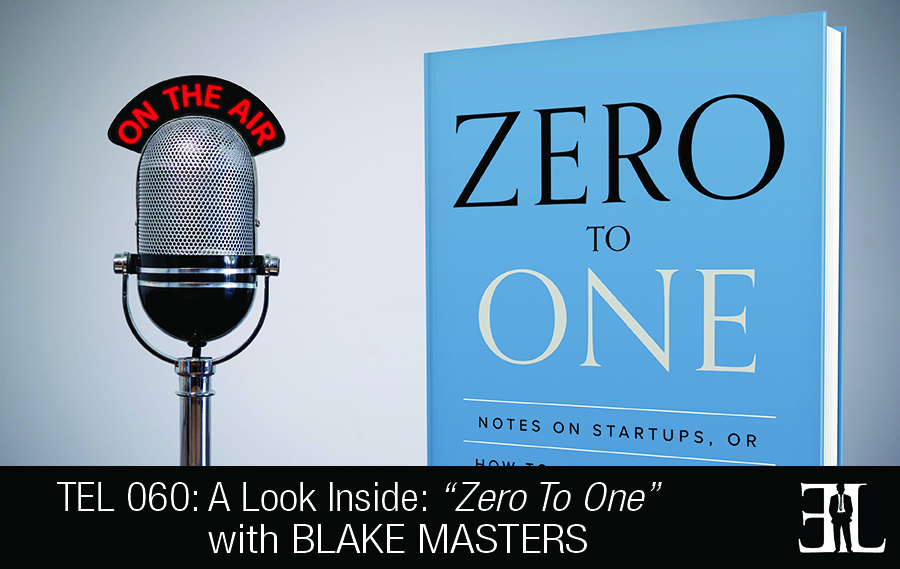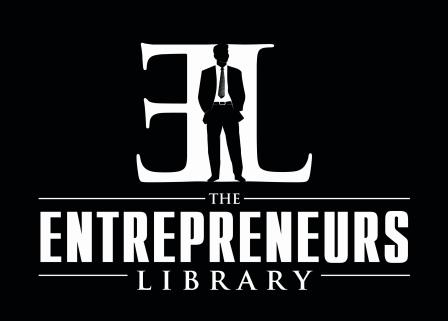
A Preview of Zero To One with Blake Masters

A summary of things you should know about Zero To One according to Blake Masters:
Introduction
In this episode Blake Masters shares his book, Zero To One, where he and Peter Thiel reveal the strategy, secrets, and truth to find success that goes above and beyond.
In his book, Masters provides you with the insights of how Peter Thiel became so successful with his ventures such as PayPal. One of the core themes in the book is the distinction between competition and a business monopoly. Both Thiel and Masters believe that success is found in the absolute differentiation of one business to another and they pave the way for you follow the same suite.
This book is perfect for entrepreneurs who have an original idea and are seeking absolute command of a niche where competition does not exist.
The Book’s Unique Quality (3:15)
We wanted to show clearly and forcefully what Peter knows about business and you can’t get this information form anywhere else.
The Best Way To Engage (4:10)
You can read it front to back or read it as a resource and jump around.
The Reader’s Takeaway (18:43)
I would tell people not to compete but rather do something unique.
A Deep Dive Into The Book (5:04)
In the first chapter we start by explaining what the title means. Zero to One is about doing new things, going from nothing and creating something where nothing existed before.
In chapter two we take a close look at the .com boom and bust of the 90’s which we think is how everybody today continues to think about business.
One of the core themes in the book is the distinction between competition and monopoly. Americans love competition and it’s become sort of like a secular religion but the message we portray in the book is that competition is not what you want to be focused on when you’re building a business. We think successful business is all about differentiation and differentiation at large is really monopoly.
About halfway, chapter six is called You Are Not a Lottery Ticket. This is a meditation on chance and luck and how far we’ve gravitated as a society towards explaining things purely in those terms. In America we are optimistic and chapter six is our call to reclaiming a definite attitude where we don’t just assume things are going to get better but we know that if you plan where you want to go then maybe you can actually get there.
We have a whole chapter on secrets which are our answers to what Peter calls his contrarian question, what very important truth do few people agree with you on. This seems like a very easy question but actually it’s really hard to answer. If you have the question you have to not only think out of the box but also have to be brave enough to tell someone that. Any truth about your business that no one else in your business knows we prefer to call that a secret because there is something about the terminology that captures people’s attention and makes them wonder.
In another chapter we talk about how to sell a product. Silicon Valley tends to be overweight product and underweight sales even though sales are just as important as the product. If you have a good product but not a good way to distribute it then you actually don’t have a good product. We make the claim that it is best to take distribution seriously and think of it as part of your product.
Chapter 12 is about computers and humans and how they relate to each other both now and in the future. We think that humans and computers are so different that they are mostly complimentary. We also think that the most valuable businesses in the coming years will be the ones who understand and leverage the complimentary nature of machines and humans.
Chapter 13 is a recap of the book formulated in seven questions that every startup has to get right.
We end the book with a chapter about founders and entrepreneurs. It’s important for founders to understand the position that they are in so that they can be affective.
Notable Quotes From The Book (21:45)
“The smartphones that distract us from our surroundings also distract us from the fact that our surroundings are strangely old.” – Blake Masters
The Credibility/Inspiration Of The Author (0:32)
I live out in San Francisco with my wife and 4 month year old baby. I am the co-founded of a legal research technology startup called Judicata. Prior to that I was at law school at Stanford and worked as an early sales person at Box.
The book is based on a class that Peter Thiel taught at Stanford in 2012 call CS 183 Startup. Peter’s goal in teaching the class was to tell his students everything he knew about business. I took really good class notes and put them online and then they ended up getting read by hundreds of thousands of people and became basic required reading in Silicon Valley.
Other Books Recommended By The Author (24:37)
The Age of the Moguls by Stewart H. Holbrook
More Information About This Book and The Author
Buy Zero To One by Peter Thiel and Blake Masters on Amazon today
Visit ZeroToOneBook.com to learn more about Blake’s book
Visit BlakeMasters.com to learn more about Blake and his notes on Peter Thiel’s class
Follow Blake Masters on Twitter and Facebook
More Information About This Episode
Download the full transcript here
Listen on iTunes, Stitcher , and SoundCloud
Related books: All In Startup by Diana Kander | Exponential Organizations by Salim Ismail | The Art of War for Small Business by Becky Sheetz-Runkle
Relevant advice and tips: 5 Important Things That Every Entrepreneur Needs To Know About Starting a New Business
What did you like and not like about this episode? Fill out this one minute survey here.
 The Entrepreneurs Library
The Entrepreneurs Library






